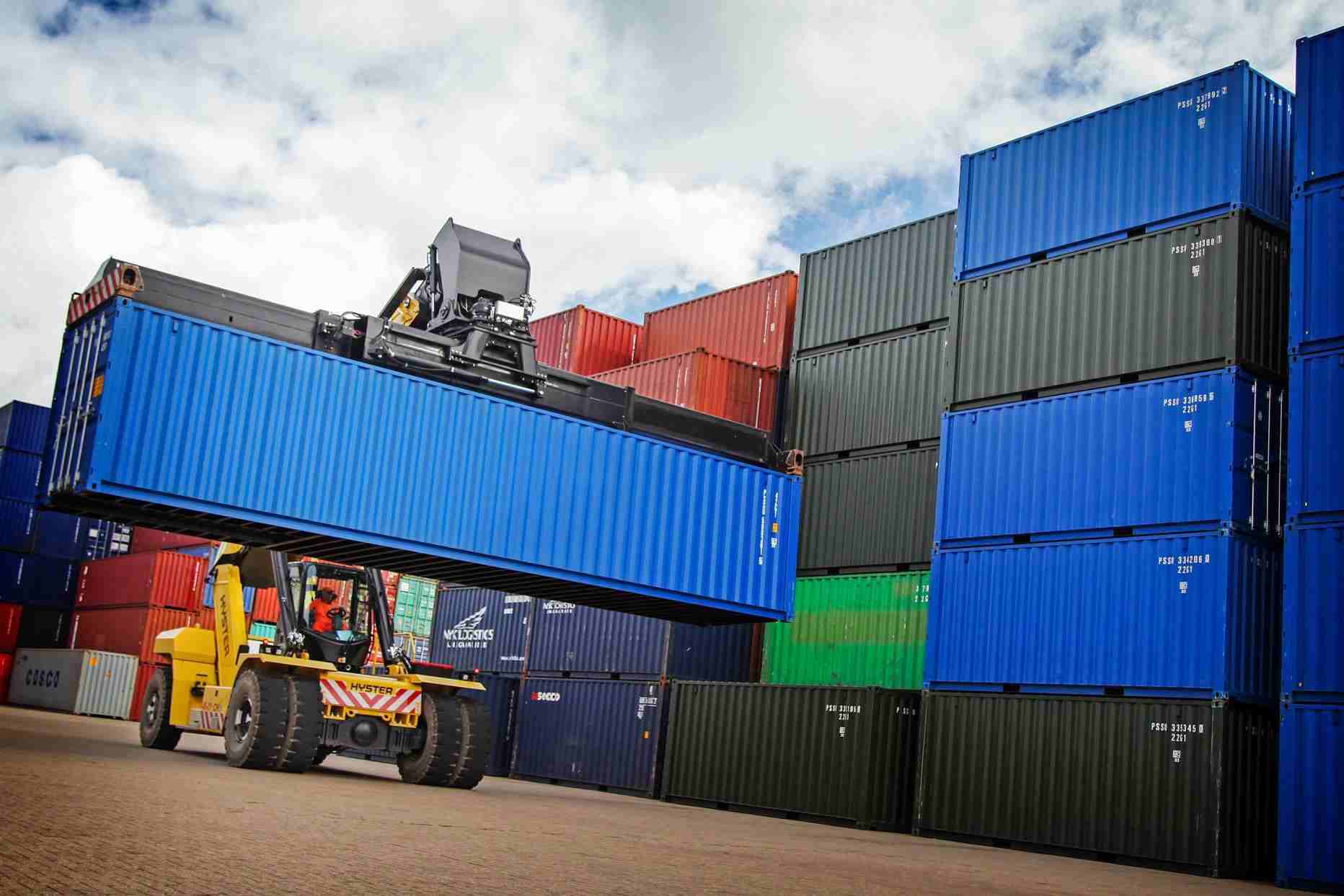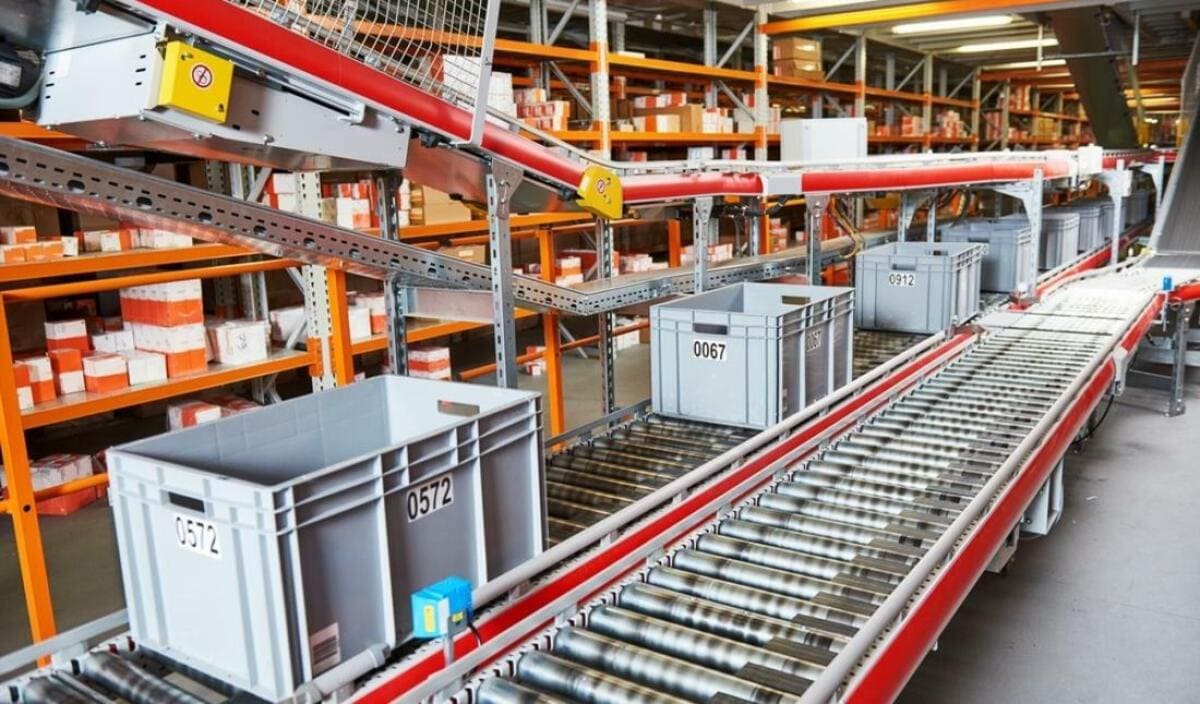Incoterms are trade terms that define the obligations of sellers and buyers in all aspects: who delivers and where, who handles loading/unloading, how transportation costs are allocated, and insurance is managed. These rules apply only to international trade. Experts from DiFFreight share important information about Incoterms for businesses.
Types of Incoterms
Now that you know what Incoterms delivery terms are, let's review the terms:
- Seller – The party who supplies the goods and fulfills the obligations (preparation, packaging, delivery, etc.).
- Buyer – The party who purchases the goods and assumes responsibility after the transfer of risks.
- Transfer of Risk – The moment when responsibility for the goods transfers from the seller to the buyer.
- Loading – The process of loading goods onto a transportation vehicle (truck, ship, plane, etc.).
- Unloading – The process of removing goods from a vehicle at the destination.
- Freight – The cost of transportation.
- Customs Clearance – The preparation of documents and payment of customs duties for export or import.
- Insurance – Protection of goods against damage or loss during transportation.
- Place of Delivery – The point where the seller considers their obligations fulfilled.
- Transport Costs – All costs related to transporting the goods (freight, fuel, port charges, etc.).
Incoterms rules clearly regulate who is responsible for what in different models. Most use the latest version, as it is currently the most accurate and comprehensive.
Incoterms 2000, 2010, and 2020 – Main Differences
Incoterms 2000 included 13 terms and a fairly precise description of the responsibilities of the parties regarding customs clearance. The first version allowed for discrepancies and was not very precise in some aspects, which led to the creation of a new version.
Incoterms 2010 terms were reduced from 13 to 11, with explanations added for multimodal transport (when multiple types of transportation are used). The rules for insurance were also clarified.
The latest version, Incoterms 2020, is the most complete and current. Now, goods can be unloaded anywhere, not just at the terminal under DPU. The rules for insurance in CIF and CIP have been expanded and clarified. The obligations of the parties when transporting using the buyer’s own vehicle have also been described in detail.
Types of Incoterms
There are 11 in total, divided into 4 groups.
Group E (Departure)
- EXW (Ex Works / Ex Works)
The seller provides the goods at their warehouse, and all costs and risks are borne by the buyer. This model can be conditionally called "pickup."
Group F (Main transport unpaid by the seller)
- FCA (Free Carrier / Free Carrier)
The seller delivers the goods to a carrier chosen by the buyer at the specified location.
- FAS (Free Alongside Ship / Free Alongside Ship)
The seller delivers the goods to the side of the ship at the port, and responsibility passes to the buyer.
- FOB (Free On Board / Free On Board)
The seller loads the goods onto the ship at the port of departure, after which the responsibility and costs pass to the buyer.
Group C (Main transport paid by the seller)
- CPT (Carriage Paid To / Carriage Paid To)
The seller pays for delivery to an agreed point, but the risk transfers to the buyer when the goods are handed to the carrier.
- CIP (Carriage and Insurance Paid to / Carriage and Insurance Paid to)
Similar to CPT, but the seller additionally pays for cargo insurance.
- CFR (Cost and Freight / Cost and Freight)
The seller pays for sea transport to the destination port, but the risks transfer when the goods are loaded onto the ship.
- CIF (Cost, Insurance and Freight / Cost, Insurance, and Freight)
Similar to CFR, but the seller also pays for cargo insurance.
Group D (Delivery to the destination point)
- DAP (Delivered at Place / Delivered at Place)
The seller arranges delivery to the specified location, but unloading and customs duties are the buyer's responsibility.
- DPU (Delivered at Place Unloaded / Delivered at Place Unloaded)
Similar to DAP, but the seller arranges unloading.
- DDP (Delivered Duty Paid / Delivered Duty Paid)
The seller assumes all costs and risks, including customs duties, until the goods are delivered to the buyer's doorstep.
We recommend studying detailed articles from DiFFreight to understand the nuances and delivery terms of each type through specific examples.

Delivery Terms Incoterms: Essentials for Entrepreneurs
Why should your business know the Incoterms delivery terms? It’s essential if you are involved in international trade. The rules clearly delineate the responsibilities of the parties so that you and the seller can agree on the optimal delivery methods. Let's look at examples:
- You are buying goods in bulk from China. You have a partner who provides international logistics services at favorable rates for you. Therefore, you don't need models like DPU or DDP with unloading and duty payment because it's cheaper to buy the container, hire a broker, and deliver the goods yourself.
- Your purchase is small-scale, and you don’t work with third parties (brokers, logistics companies). Models where the seller hands over the goods and risks in the country of purchase won’t work because you don't know where or how to find a carrier.
When working with partners, sooner or later, the question of which delivery terms to choose will arise. This is where knowing Incoterms comes in handy, as it helps you understand which responsibilities fall on the seller and which fall on you, the buyer. Delivery terms also help:
- Reduce Risks: Minimizing disputes and financial losses due to uncertainties in delivery.
- Optimize Costs: The ability to choose cost-effective transportation and insurance options.
- Comply with International Standards: Simplifies contract signing and cooperation with partners worldwide.
Delivery contract terms standardize international shipping to help avoid misunderstandings and financial losses for both sellers and buyers.
Here is a table of the 2020 Incoterms terms, indicating the areas of responsibility.
Universal Terms (for all transport modes)
Groups E, F, and C:
| Terms |
EXW |
FCA |
CPT |
CIP |
| Packaging |
Seller |
Seller |
Seller |
Seller |
| Loading |
Buyer |
Seller |
Seller |
Seller |
| Domestic transportation |
Buyer |
Seller |
Seller |
Seller |
| Export customs clearance |
Buyer |
Seller |
Seller |
Seller |
| Costs at the departure terminal |
Buyer |
Buyer |
Seller |
Seller |
| Loading on the ship |
Buyer |
Buyer |
Seller |
Seller |
| Freight |
Buyer |
Buyer |
Seller |
Seller |
| Insurance |
Buyer |
Buyer |
Buyer |
Seller |
| Costs at the arrival terminal |
Buyer |
Buyer |
Seller |
Seller |
| Customs clearance |
Buyer |
Buyer |
Buyer |
Buyer |
| Delivery at the destination |
Buyer |
Buyer |
Buyer |
Buyer |
| | | | |
Group D:
| Terms |
DAP |
DPU |
DDP |
| Packaging |
Seller |
Seller |
Seller |
| Loading |
Seller |
Seller |
Seller |
| Domestic transportation |
Seller |
Seller |
Seller |
| Export customs clearance |
Seller |
Seller |
Seller |
| Costs at the departure terminal |
Seller |
Seller |
Seller |
| Loading on the ship |
Seller |
Seller |
Seller |
| Freight |
Seller |
Seller |
Seller |
| Insurance |
Buyer |
Buyer |
Buyer |
| Costs at the arrival terminal |
Seller |
Seller |
Seller |
| Customs clearance |
Buyer |
Buyer |
Seller |
| Delivery at the destination |
Buyer |
Buyer |
Seller |
| | | |
Sea and inland water transport
| Terms |
FAS |
FOB |
CFR |
CIF |
| Packaging |
Seller |
Seller |
Seller |
Seller |
| Loading |
Seller |
Seller |
Seller |
Seller |
| Domestic transportation |
Seller |
Seller |
Seller |
Seller |
| Export customs clearance |
Seller |
Seller |
Seller |
Seller |
| Costs at the departure terminal |
Seller |
Seller |
Seller |
Seller |
| Loading on the ship |
Buyer |
Seller |
Seller |
Seller |
| Freight |
Buyer |
Buyer |
Seller |
Seller |
| Insurance |
Buyer |
Buyer |
Buyer |
Seller |
| Costs at the arrival terminal |
Buyer |
Buyer |
Buyer |
Buyer |
| Customs clearance |
Buyer |
Buyer |
Buyer |
Buyer |
| Delivery at the destination |
Buyer |
Buyer |
Buyer |
Buyer |
| | | | |
Choose the Right Terms for Successful and Safe Deliveries
During a consultation, DiFFreight experts will select the appropriate Incoterms for your situation and organize customs brokerage services and turnkey logistics transportation. To schedule a consultation, please write to us or call.

